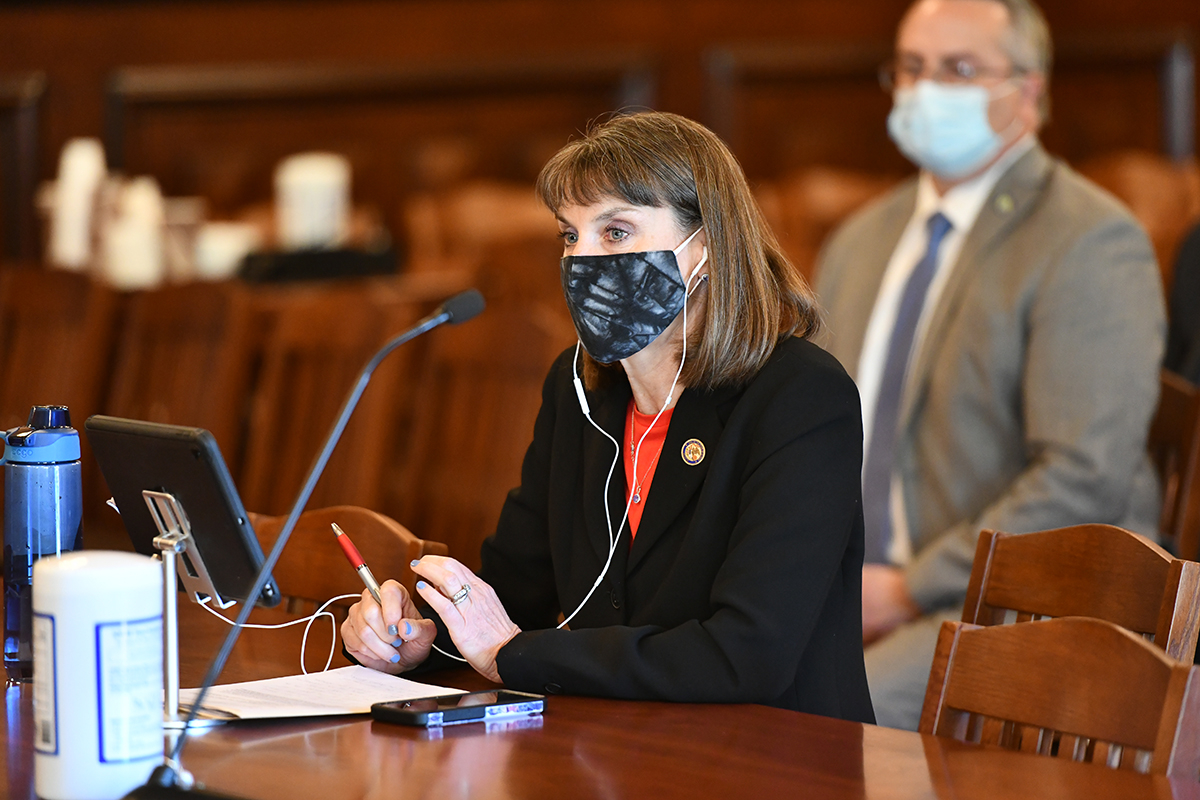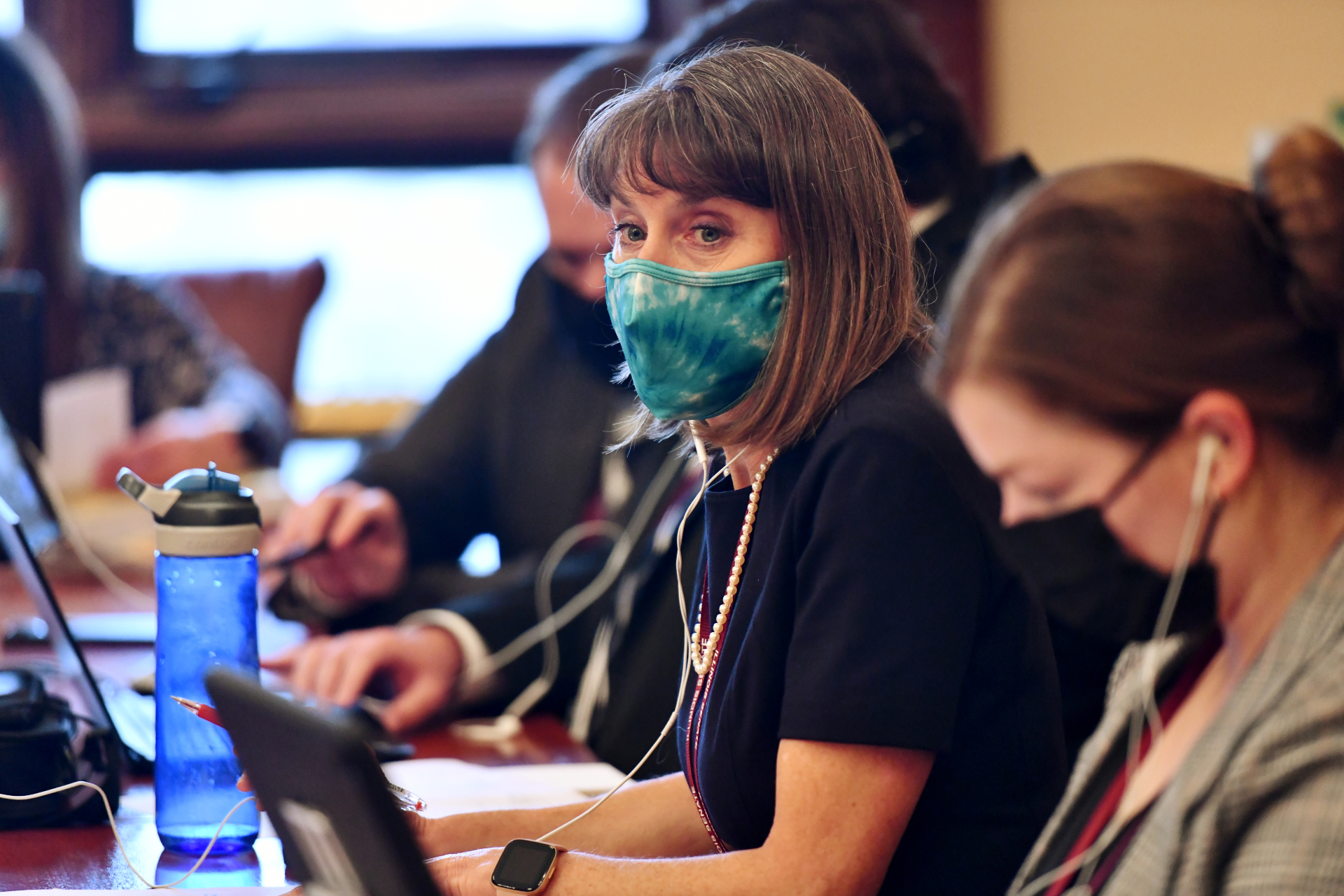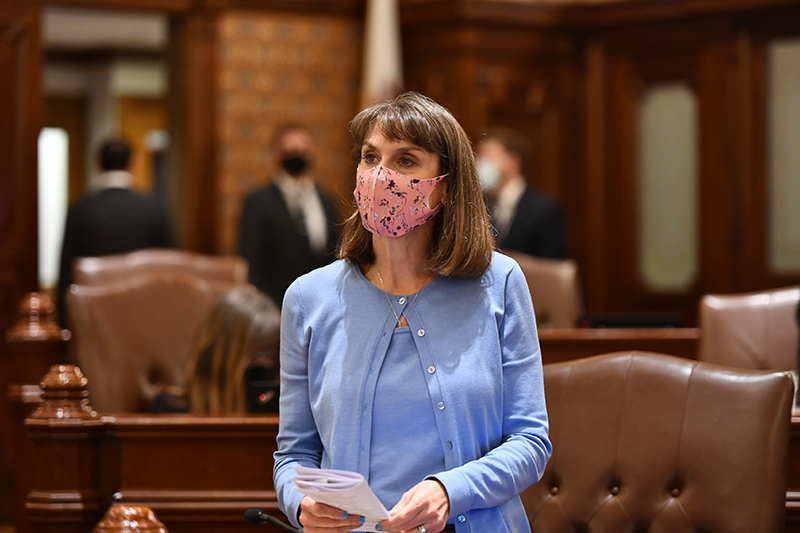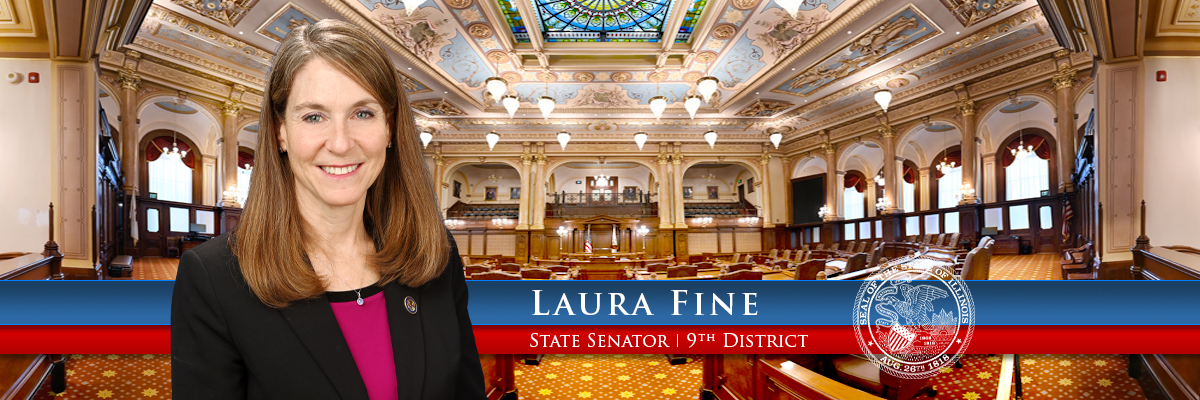Senator Fine: Spotlight on lack of resources for youth mental health services
- Details
- Category: Press Releases
 CHICAGO – Concerned about the lack of resources for youth residential mental health services, State Senator Laura Fine (D-Glenview) led a joint hearing Wednesday with the Senator Behavioral and Mental Health Committee and the House Mental Health and Addiction Committee.
CHICAGO – Concerned about the lack of resources for youth residential mental health services, State Senator Laura Fine (D-Glenview) led a joint hearing Wednesday with the Senator Behavioral and Mental Health Committee and the House Mental Health and Addiction Committee.
“The resources available for residential and inpatient mental health services for children across Illinois are severely lacking,” Senator Fine said. “This has been a crisis for a long time, but the devastating effects of the COVID-19 pandemic have put it in the spotlight.”
Children are suffering even more due to the COVID-19 pandemic, and there are not enough in-patient and residential beds for Illinois youth, especially for those on Medicaid. Committee members and panelists discussed solutions to expand access to behavioral and mental health care while addressing the funding gap in our system.
The joint hearing included testimony from advocates representing Rosecrance Health Network, Advocate Children’s Hospital, Ann & Robert H. Lurie Children’s Hospital of Chicago, Chasing Hope Foundation, Illinois Collaboration on Youth, Illinois Probation and Court Services Association, Community and Residential Services Authority and the Department of Healthcare and Family Services.
“Children should be able to receive appropriate mental and behavioral health treatment without having to go far from home or stay in a hospital unnecessarily,” Senator Fine said. “We can and must do better by increasing our mental health workforce so children can be placed appropriately and get the right care at the right time.”
Committee proceedings are streamed live and can be viewed at ILGA.gov.
Senators Fine and Villa advocate for mental health workforce
- Details
- Category: Press Releases
 SPRINGFIELD – State Senators Laura Fine (D-Glenview) and Karina Villa (D-West Chicago) led a hearing of the Senate Behavioral and Mental Health Committee on Friday to listen to testimony regarding mental and behavioral health workforce shortages.
SPRINGFIELD – State Senators Laura Fine (D-Glenview) and Karina Villa (D-West Chicago) led a hearing of the Senate Behavioral and Mental Health Committee on Friday to listen to testimony regarding mental and behavioral health workforce shortages.
“Finding a solution to labor shortages in the mental and behavioral health community is imperative to protecting people who rely on their services,” Senator Fine said. “Mental health care is health care, and it’s important that we find a way for patients across Illinois to receive the timely, accessible treatment they deserve.”
The COVID-19 pandemic continues to present challenges, resulting in labor shortages that are affecting the mental and behavioral health workforce. These shortages could significantly impact both patients and providers as demand for mental health services continues to grow.
Advocates from the Illinois Department of Human Services, the Illinois Association of Behavioral Health, the Community Behavioral Healthcare Association of Illinois, Illinois Partners for Human Services, the Illinois Association of Rehabilitation Facilities and Thresholds testified at the hearing.
“It’s critical that we find a way to ensure the number of mental health professionals can keep up with the ever increasing demand of people seeking treatment,” Senator Villa said. “We must address this issue before it drastically affects our neighbors, friends, family or even ourselves.”
Committee proceedings are streamed live and can be viewed at ILGA.gov.
Senator Fine receives ICED’s Legislator of the Year award
- Details
- Category: News

SPRINGFIELD – The Interagency Committee on Employees with Disabilities awarded State Senator Laura Fine (D-Glenview) with its prestigious Legislator of the Year title Thursday.
“I’ve always been a strong advocate for people with disabilities, and as a legislator I have been dedicated to fighting for their rights,” Senator Fine said. “From expanding dual credit courses for students with intellectual disabilities to ensuring representation from the disability community in statewide groups, we have made incredible advancements in our state, but the fight isn’t over.”
ICED supports state employees with disabilities and provides advice to state agencies in regards to disability-related issues of concern. The committee’s mission is to promote access, independence and opportunity for state of Illinois employees with disabilities.
The Legislator of the Year award is presented to a state legislator who has worked to advance the rights, opportunities or independence of people with disabilities through legislation.
“It is my distinct honor and privilege to accept the ICED Legislator of the Year award,” Senator Fine said. “I look forward to continuing our work together to ensure a better world for people with disabilities across Illinois.”
More information on ICED and its awards program can be found on the ICED website.
Senator Fine reminds local businesses to apply for grants before deadline
- Details
- Category: Press Releases

Overall, the B2B program will provide $250 million in American Rescue Plan dollars for small businesses negatively affected by the pandemic. Grants will range from $5,000 to $150,000 per business and can be used to cover a wide range of operations, such as staff and overhead costs.
“Our community is already seeing firsthand how the Back to Business grant program can help keep our small businesses’ doors open,” Senator Fine said. “Any other local businesses seeking assistance must apply for this important funding before the upcoming deadline so the 9th District can continue to thrive.”
Priority is given to businesses in hard-hit industries, in hard-hit areas, and with revenues less than $5 million, as well as businesses that have not yet received any government assistance. Eligibility guidelines are also available in: Spanish, Polish, Chinese, Hindi, and Arabic.
Twenty businesses in the district Senator Fine represents have already received $1.4 million in grants. They include restaurants, hotels and a salon, demonstrating the diversity of the local small business community and how many different kinds of businesses are eligible for grants.
Learn more about the B2B grant program and start an application on the Department of Commerce and Economic Opportunity website. The deadline to submit an application is Oct. 13.
More Articles …
Page 45 of 78








